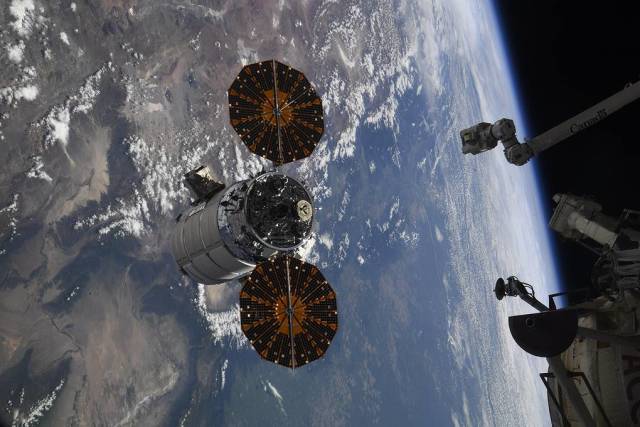Conditionally pathogenic bacteria and mold forms of fungi were found among them
MOSCOW, January 17. /tass/. Scientists of the Institute of Biomedical Problems (IMBP) The Russian Academy of Sciences has been conducting research on samples from the inner surface of the Zarya functional cargo unit (FGB) of the ISS for several years and found more than 20 types of microorganisms there. This is stated in the theses to the XLVI Academic Readings on Cosmonautics in memory of S.P. Korolev (Royal Readings).
"As a result of onboard experiments carried out in the internal volume of the ISS FGB during the work of five main expeditions, more than 20 species of microorganisms were isolated and identified from the habitat, among which there are conditionally pathogenic bacteria and mold forms of fungi," the theses say.
The materials presented by researchers from the IBMP state that the habitat of the module, as well as the entire Russian segment of the ISS, is an ecological niche in which bacteria and microscopic forms of fungi live. "As the main habitat, these microorganisms use decorative, finishing and structural materials of the station," the theses specify.
The experiment on the ISS involved taking samples and delivering them to Earth in descent vehicles. Over 200 samples were taken within three years, bacteria were found in 34% of them, mold fungi in 3%. "5% of samples with the presence of bacterial microflora and 100% of samples with the presence of fungal microflora exceeded the normative indicator regulated by SSP 50260 MORD," the materials say.
In particular, scientists have found gram-positive cocci, spore-forming sticks, gram-negative aerobic or facultative aerobic sticks. Conditionally pathogenic species include pathogens of opportunistic infections (Staphylococcus aureus, Streptococcus sp.) and spore-forming bacteria of the genus Bacillus.
XLVI Academic Readings on Cosmonautics in memory of S. P. Korolev (Royal Readings) will be held at the Bauman Moscow State Technical University from January 25 to 28.

